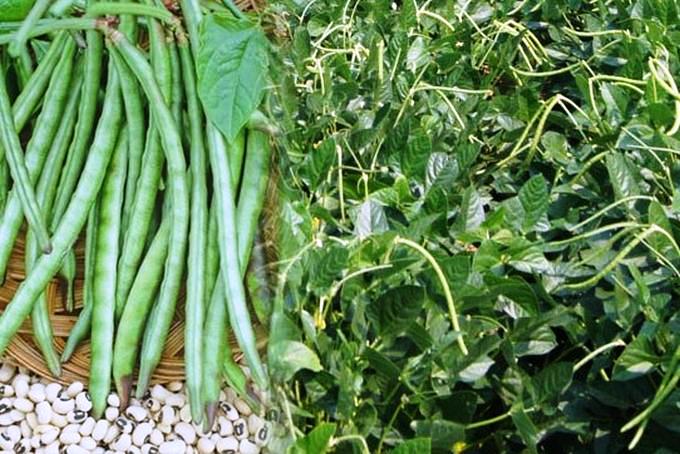Research scientists from the Savanna Agricultural Research Institute of the Council for Scientific and Industrial Research (CSIR-SARI) working on the Pod Borer Resistant Cowpea (PBR Cowpea) variety have been commended for sticking to the confined field trial protocols issued by the National Biosafety Authority.
The adherence to protocol helps to ensure quality research work that meets both national and international standards, and also enables farmers to have access to improved cowpea varieties which lead to an increase in yield. The basic rule for the trial is that researchers are not allowed to take anything from the field outside the fence; thus, it being called a Confined Field Trial.
Chairman of the Institutional Biosafety Committee (IBC), Dr. Nicholas Denwar, made the commendation after a field observation during the annual field visit programme to the Confined Field Trials of the Pod Borer Resistant (PBR) Cowpea in Nyankpala last week.
Dr. Denwar said it is important the research team adheres to all rules and protocols governing the research to avoid any contamination that might affect the research work.
The new Principal Investigator (PI) of the PBR Cowpea project, Dr. Jerry Nboyine, said the essence of the trial is primarily to develop a cowpea variety that is resistant to the legume pod borer, Maruca Vitrata.
This pest, he said, is one of the most destructive pests in cowpea production – capable of causing yield loss of up to 80 percent if unchecked. “Farmers therefore resort to chemical spraying up to 8 to 10 times to control it.”
Gloria Adazebra, the breeder in charge of these trials, informed he visitors that the project was initiated due to the severe economic damage the Maruca pest is causing cowpea farmers, which conventional means of breeding could not solve.
She mentioned that several attempts have been made to control this devastation with pesticides, and to also try and locate cowpea varieties with resistance – but to no avail. So, they were delighted when it was found out that a protein from BT could help the local cowpea varieties express a resistance to this Maruca pest.
According to her, the unit has been running several research activities to ascertain its safety and effectiveness in controlling the pest.
She noted that after several years of evaluating how effective it was at resisting the pest in Burkina Faso and Nigeria, it was brought to Ghana for further trials.
“In Ghana, the field-trials have been ongoing for more than five years – running several tests for several parameters including environmental safety, effects of the gene on beneficial insects such as bees, and effectiveness of the gene in controlling the Maruca pest all came out successful.”
She stressed that the gene is being transferred by conventional breeding by crossing the local varieties with a pre-existing variety that has the gene incorporated in it.










